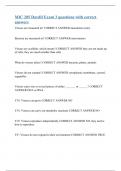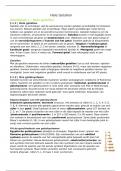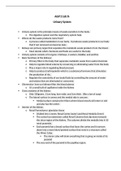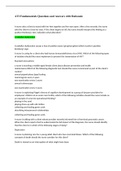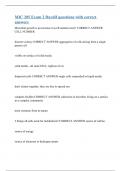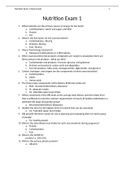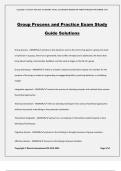Exam (elaborations)
ENG2611 PORTFOLIO (ANSWERS) 2024 - DISTINCTION GUARANTEED
- Institution
- University Of South Africa (Unisa)
Well-structured ENG2611 PORTFOLIO (ANSWERS) 2024 - DISTINCTION GUARANTEED. (DETAILED ANSWERS - DISTINCTION GUARANTEED!)..... QUESTION 1 1.1. According to Leland et al. (2013), we need to understand that texts often embrace cultural ideas and, therefore, we should be sensitive to the ideas associate...
[Show more]





